OKRs ≠ Strategy
Hey I’m Ant and welcome to my newsletter where you will find actionable posts on topics related to product, business and leadership.
You might have missed these recent posts::
- 3 Product Vision Formats That Aren’t Boring!
- Building Effecive Product Roadmaps
- Break Outcomes Down, Not Initiatives
My day job is helping companies shift to a Product Operating Model.
My evening job is helping product people master their craft with Product Pathways.
If video is more your thing, check my Youtube channel out!
Your OKRs don’t live in a vacuum.
Yet this is exactly how I see many organizations treat them.
They jump on the bandwagon and create OKRs void of any context.
What I observe is this:
OKR -> Work
OKR -> WorkThey create an OKR and then jump straight to the work with no other context or information.
This is a problem because OKRs alone don't explain:
What your vision is?
Why the OKR matters?
What the strategy is going to be?
Why did you choose that particular objective?
How does this particularly OKR connect to the vision?
What information led you to choose this OKR over others?
etc…
This clarity is absolutely critical to create alignment, buy-in and allow for teams to be empowered to work out HOW to achieve that OKR.
I’ll give you an example.
Many of you will be familiar with Elon Musk’s ‘master plan’ for Tesla that he wrote back in 2006.
For those who don’t know, Elon famously wrote this blog post detailing some of Tesla’s strategy in which he outlined a 4 step ‘master plan’:
Build sports car
Use that money to build an affordable car
Use that money to build an even more affordable car
While doing above, also provide zero emission electric power generation options
Now imagine you’re an employee at Tesla at the time and you’ve just been given an OKR, say to achieve a certain CSAT (Customer Satisfaction Score) from Tesla customers.
Now imagine that you haven’t heard any of this ‘master' plan’ before, and no additional context was given with the OKR - you’ve just been told that’s the objective.
Now you notice that we’ve started building a high-end sports car - the Tesla Roadster - but why?
Couldn’t we still achieve this by producing any type of car? Why start with the a high-end one?
Now, there's reasons why you could argue that a high-end car makes sense given the objective but let's imagine there was a little bit more context.
There’s a high level vision.
Vision -> OKR -> WorkTesla’s vision at the time was:
“to accelerate the advent of sustainable transport by bringing compelling mass market electric cars to market as soon as possible.” - Tesla vision circa 2003-2013
Now, this somewhat explains the OKR; if we want a mass market car, then we need to have a compelling offering that people like, but it doesn’t explain why we’re doing a sports car first.
In fact, the vision says the contrary.
If our vision is to “bring compelling mass market electric cars to market” then why aren’t we starting with a mass market car??
The problem is that while this is one step better, there’s still a lot of context missing between a long-term vision and a near-term OKR.
There's still a lot of context missing between a long-term vision and a near-term OKR.
What sits in that gap is your strategy.
Without a strategy, you would likely jump straight to building the Model 3 first and skip the Model S and Roadster.
But that wasn’t Elon’s strategy for Tesla.
Yes, their ultimate goal was to bring compelling mass market EVs, but their strategy to get there was to start with a sports car and use the money to build an affordable car. Then, use that money to build an even more affordable car.
FYI, I use this Tesla example in the video walkthroughs on both my Product Strategy Document and Product Strategy Workshop (which I cover in depth in the Product Strategy Demystified course on Product Pathways).
Access them here:
Mistaking Goal-setting for Strategy
Richard Rumelt wrote in his book Good Strategy, Bad Strategy that;
“If you fail to identify and analyze the obstacles, you don't have a strategy. Instead, you have either a stretch goal, a budget, or a list of things you wish would happen.
Rumelt goes on to frame mistaking goals for strategy as one of the 4 major hallmarks of a ‘bad strategy’.
This pattern is what I see play out time and time again in companies when it comes to OKRs.
While OKRs exist in the strategy layer, they're not the same.
The best description of OKRs I've heard was:
"OKRs are a model of your strategy."
Think of OKRs as the levers you are choosing to pull in order to make (and measure) incremental progress towards your strategy.
Not the strategy itself.
A small but important difference.
Instead, strategy are choices to:
Target a specific segment
To pull this lever (OKR) over another
To play in this field and NOT another one
To achieve this OKR first and then this one
etc...
and more importantly, all the choices to NOT do something.
Therefore, you want to strive for something like this:
Vision -> Strategy -> OKRs -> Roadmap -> Work
Vision -> Strategy -> OKRs -> Roadmap -> WorkOKRs are simply one layer in the whole thing.
Don't make the mistake of communicating your OKRs without context.
And don’t make the mistake of mistaking goal-setting (OKRs) for strategy.
p.s. If you want to learn more about implementing OKRs, watch this 👇
Need help with scaling your product or business? I can help in 4 ways::
Level up your craft with self-paced deep dive courses, FREE events and videos on YouTube, templates, and guides on Product Pathways.
1:1 Coaching/Mentoring: I help product people and founders overcome challenges through 1-hour virtual sessions.
Consulting and Advisory: I help companies drive better results by building effective product practices.
Private Workshops and Training: I run practical workshops and training courses for product teams globally.





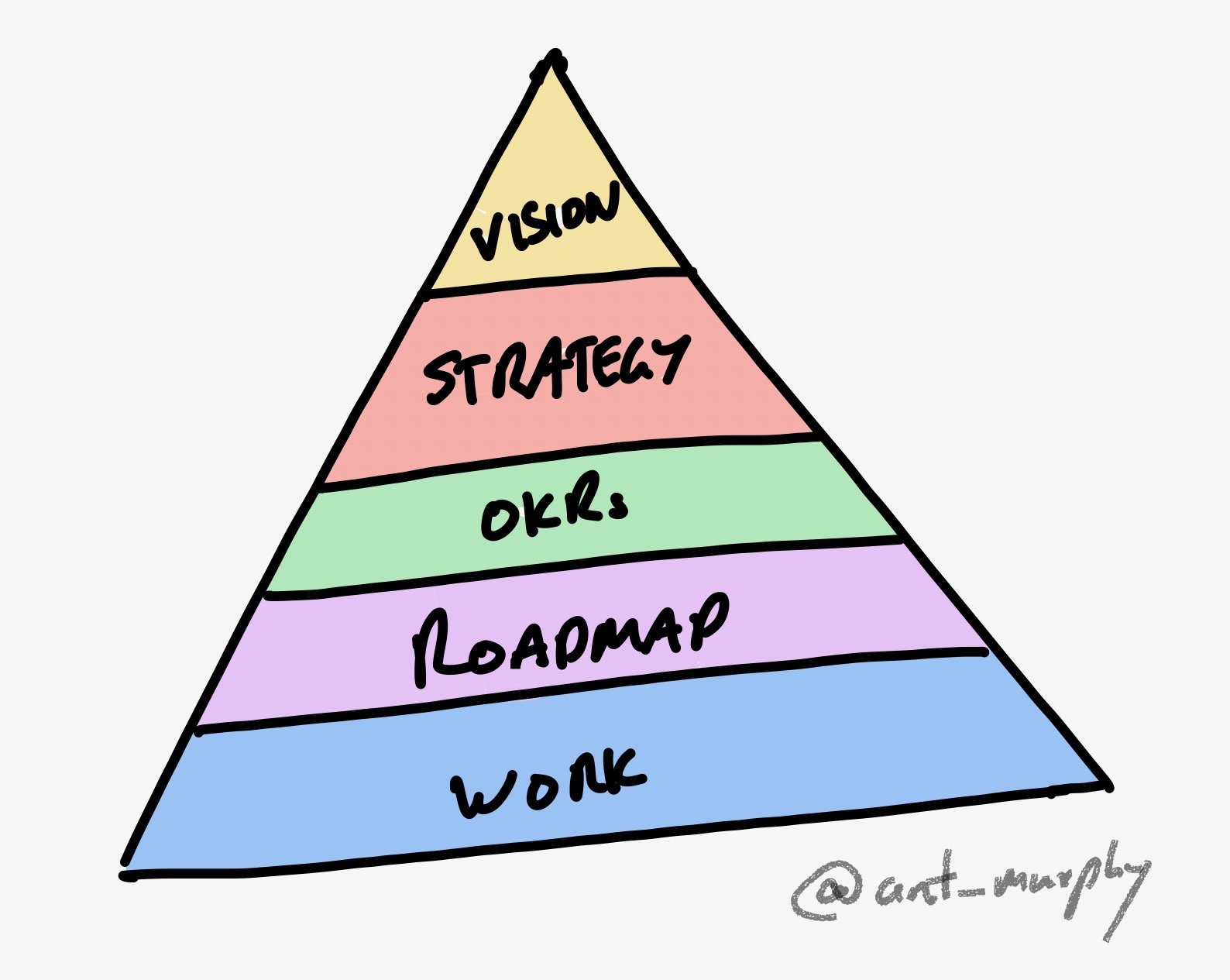
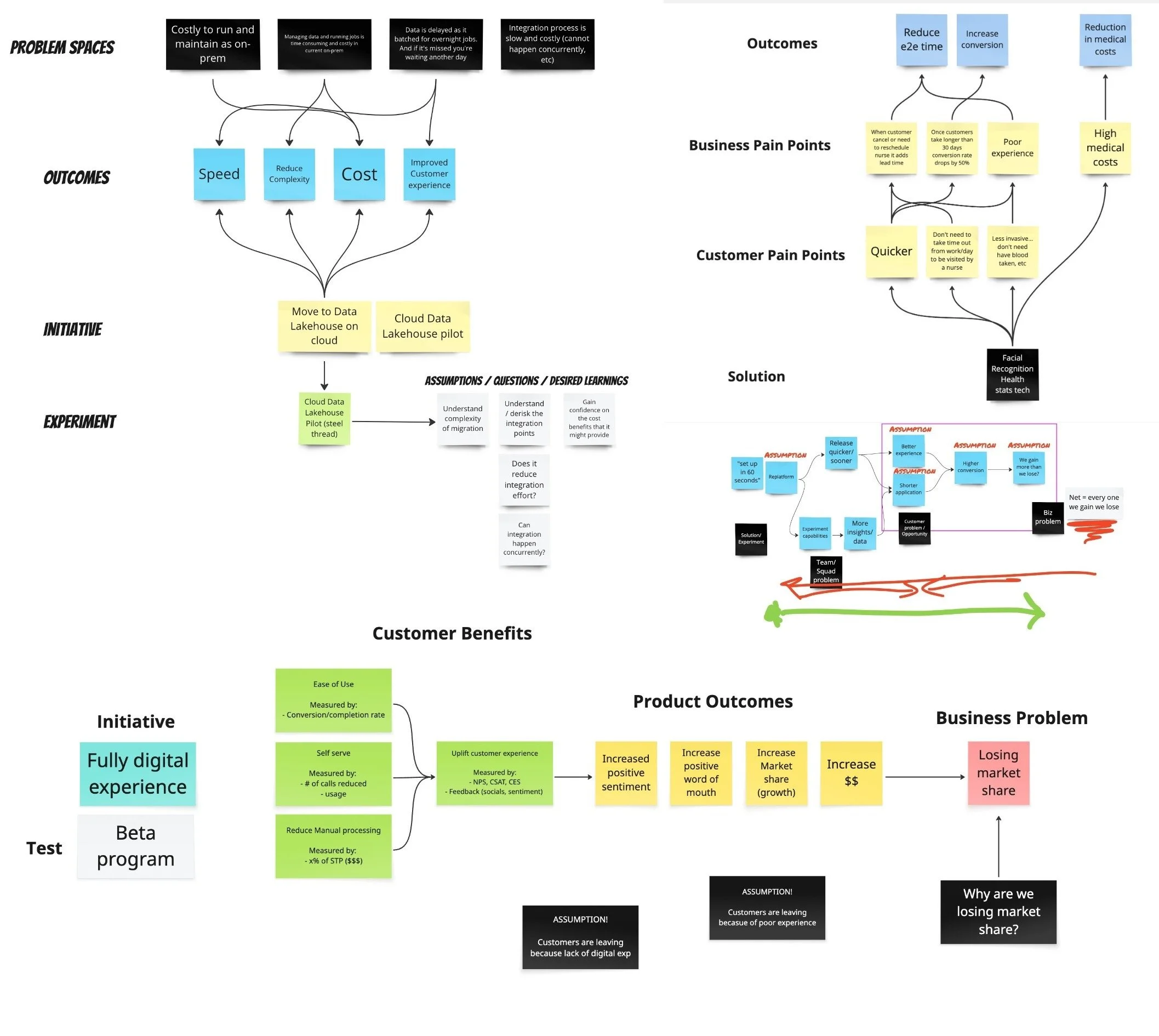


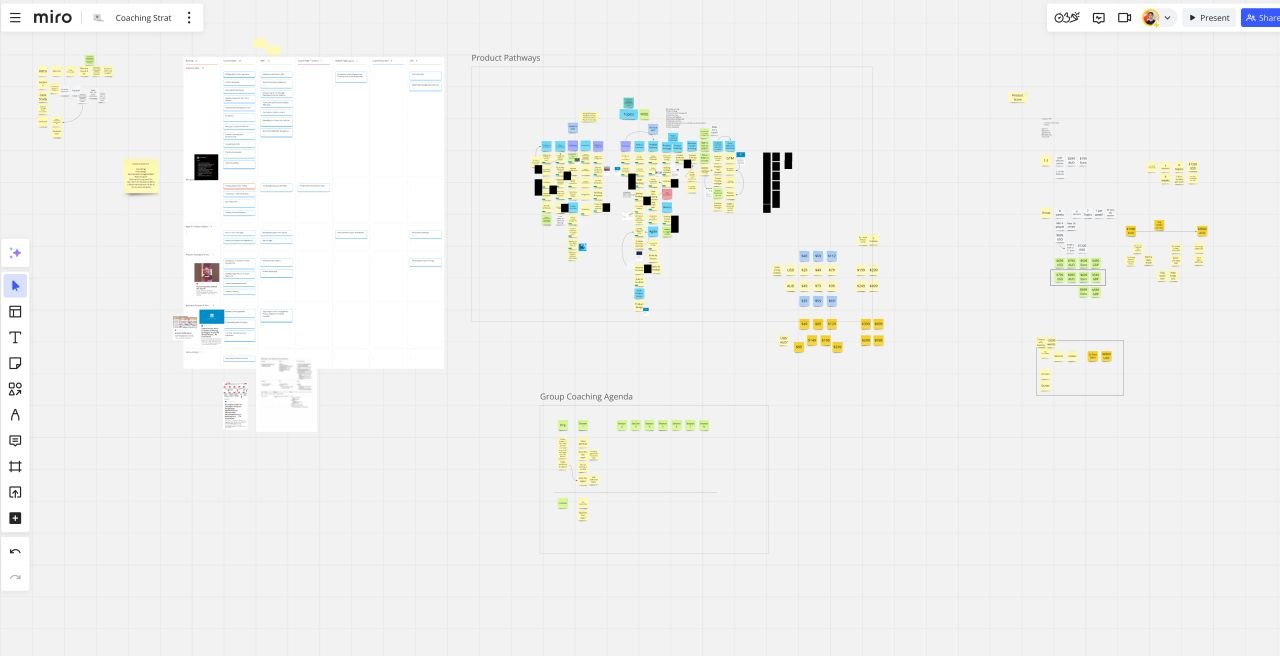



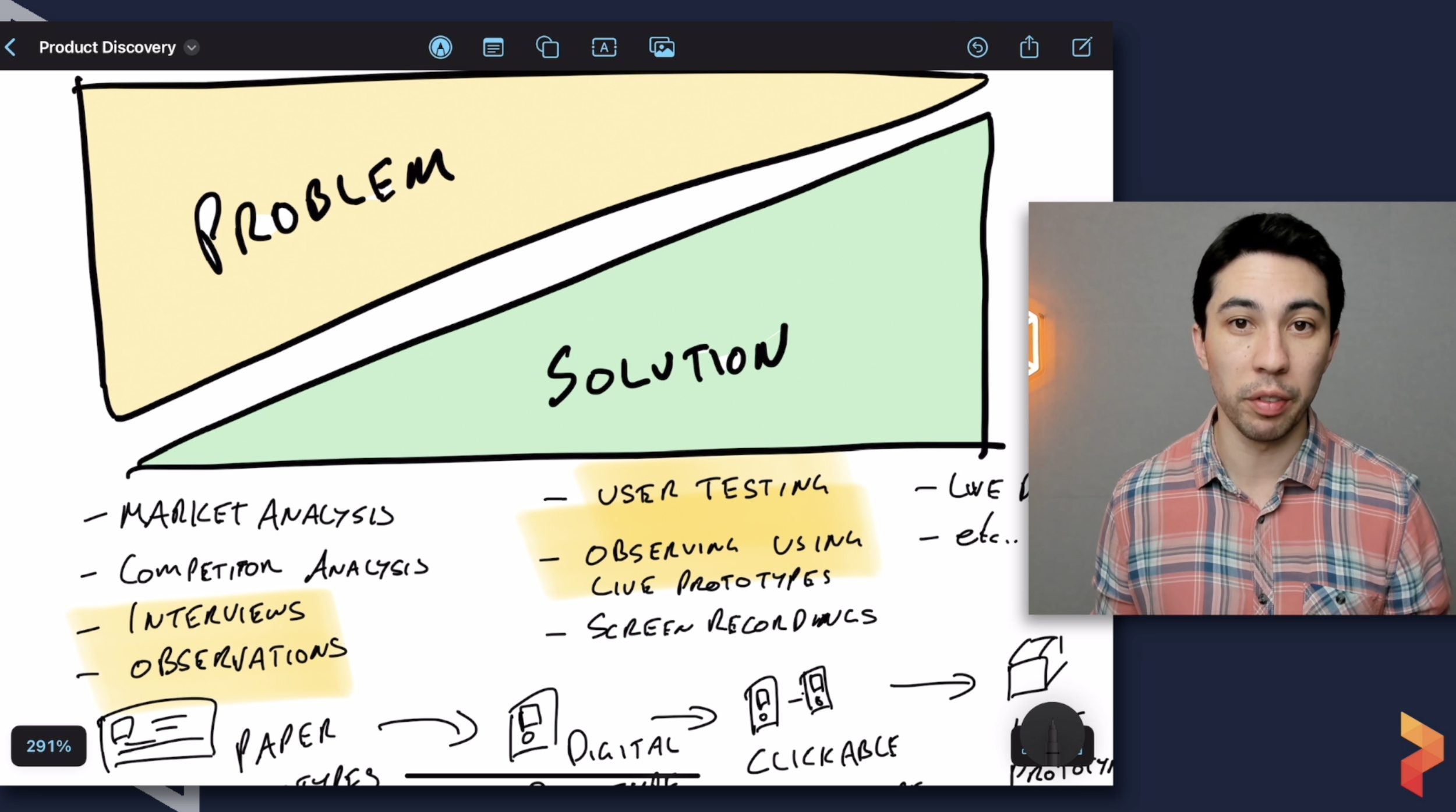
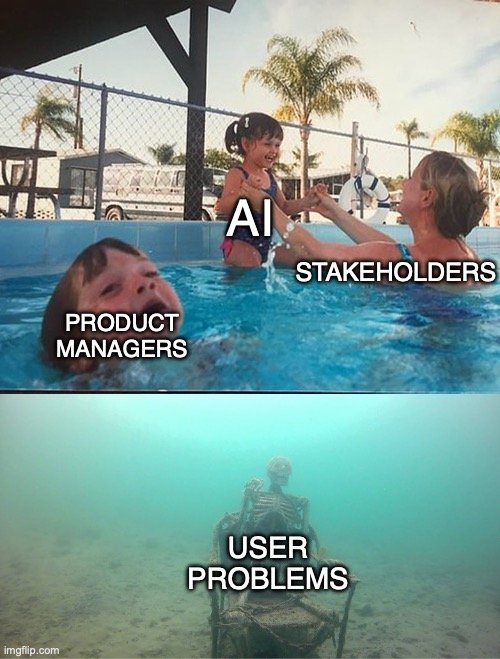


Your OKRs don’t live in a vacuum.
Yet this is exactly how I see many organizations treat their OKRs.
They jump on the bandwagon and create OKRs void of any context.
Here’s what I see all the time…